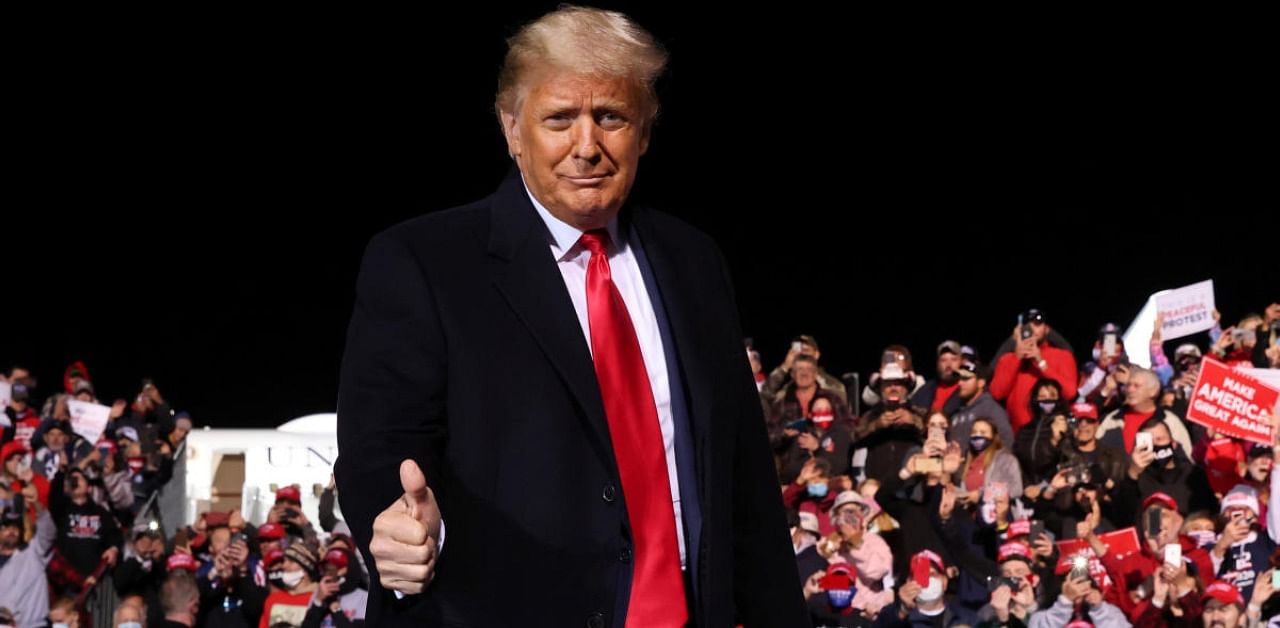
Prosecutions of environmental crimes have “plummeted” during the Trump administration, according to a new report.
The first two years of the Trump administration had a 70 per cent decrease in criminal prosecutions under the Clean Water Act and a decrease of more than 50 per cent under the Clean Air Act, the Environmental Crimes Project at the University of Michigan law school found.
The research examined cases brought between 2005 and 2018, and the two-year period starting in 2017 had “the worst pollution prosecution numbers in the 14 years covered by our study,” said David M. Uhlmann, author of the study. He presented the paper at the American Bar Association fall environmental conference; it will be published in the Michigan Journal of Environmental and Administrative law. Uhlmann, director of the environmental law and policy program at the University of Michigan law school, worked for 17 years in the Department of Justice, during the presidential administrations of both Bushes and Bill Clinton, and was the top prosecutor of environmental crimes at the Department of Justice from 2000 to 2007.
Civil prosecutions have also dropped significantly during the Trump years, and the administration has abandoned the long-standing practice of using settlements of environmental cases to require polluters to address past and future pollution issues with what are known as supplemental environmental projects.
The drop in prosecutions occurs within the larger context of President Donald Trump’s hostility toward government regulation in general and environmental regulation in particular. During the 2016 campaign, he promised to reduce the EPA to “little tidbits.” Since his election, the administration has tried to roll back 100 environmental regulations, although many of these initiatives have not fared well in the courts.
The analysis notes that resources for environmental prosecutions have long been under pressure at the federal level, which has led to a gradual drop in the number of prosecutions, even during the Obama administration. The number of defendants dropped from 191 in 2011 to 106 in 2014.
“Under President Donald J. Trump the bottom fell out,” Uhlmann wrote, “with just 90 defendants prosecuted during 2017, and 75 defendants prosecuted during 2018.” In 2018, the administration charged only nine defendants under the Clean Water Act.
After gathering the data, he wrote in the paper, he had not expected to see such an “alarming” drop in prosecutions.
Environmental prosecution is a partnership between the EPA, which investigates misconduct, and the Department of Justice, which pursues the civil and criminal lawsuits. Both agencies disputed Uhlmann’s findings.
Jeffrey Bossert Clark, who heads the environment and natural resources division of the Department of Justice, said through a spokeswoman that the article “paints a misleading picture” of the administration’s approach and “confuses quantity for quality.”
He said that while there has been a decline in water pollution cases, the number of pesticide cases has risen by “several hundred per cent” with investigations of illegal smuggling and “fraudulent Covid-19 remedies” and that prosecutors have pursued “large, high-impact cases involving gross violations of our environmental laws,” including major cases involving fraud in auto emissions. He concluded, “Our prosecutors are as busy in this Administration as they were in prior administrations, and our nation’s air and water are the cleanest they have ever been.”
Uhlmann responded that “the numbers don’t lie” and noted that 10 defendants were prosecuted for pesticide violations in 2017 and 2018, an increase of just two defendants over 2015 and 2016. If the numbers have grown since then, he said, even a several hundred per cent rise “would not offset the far larger decline in Clean Water Act and Clean Air Act prosecutions, both of which are far more significant from an environmental protection standpoint.”
He also said that the median size of fines in general has fallen, and the number of felony prosecutions — a measure of the seriousness of the crimes — has dropped steeply. To Uhlmann, that means that “pollution prosecutions under President Trump have fallen dramatically from his predecessors, both in terms of quantity and quality.” As for the emissions cases, he noted, those started under the Obama administration.
A spokeswoman for the EPA said that the agency “has reinvigorated its criminal enforcement program” and “reversed the downward trend” in cases. New cases, she said, increased “about 46 per cent” between fiscal year 2017 and 2019, and the agency expects the number of cases opened in fiscal year 2020 “to be more than double the number opened in 2017.”
Uhlmann said that citing new investigations in 2019 and 2020 does not change the “devastatingly low” number of people charged in the administration’s first two years, especially because “a significant number of investigations never result in criminal charges.”